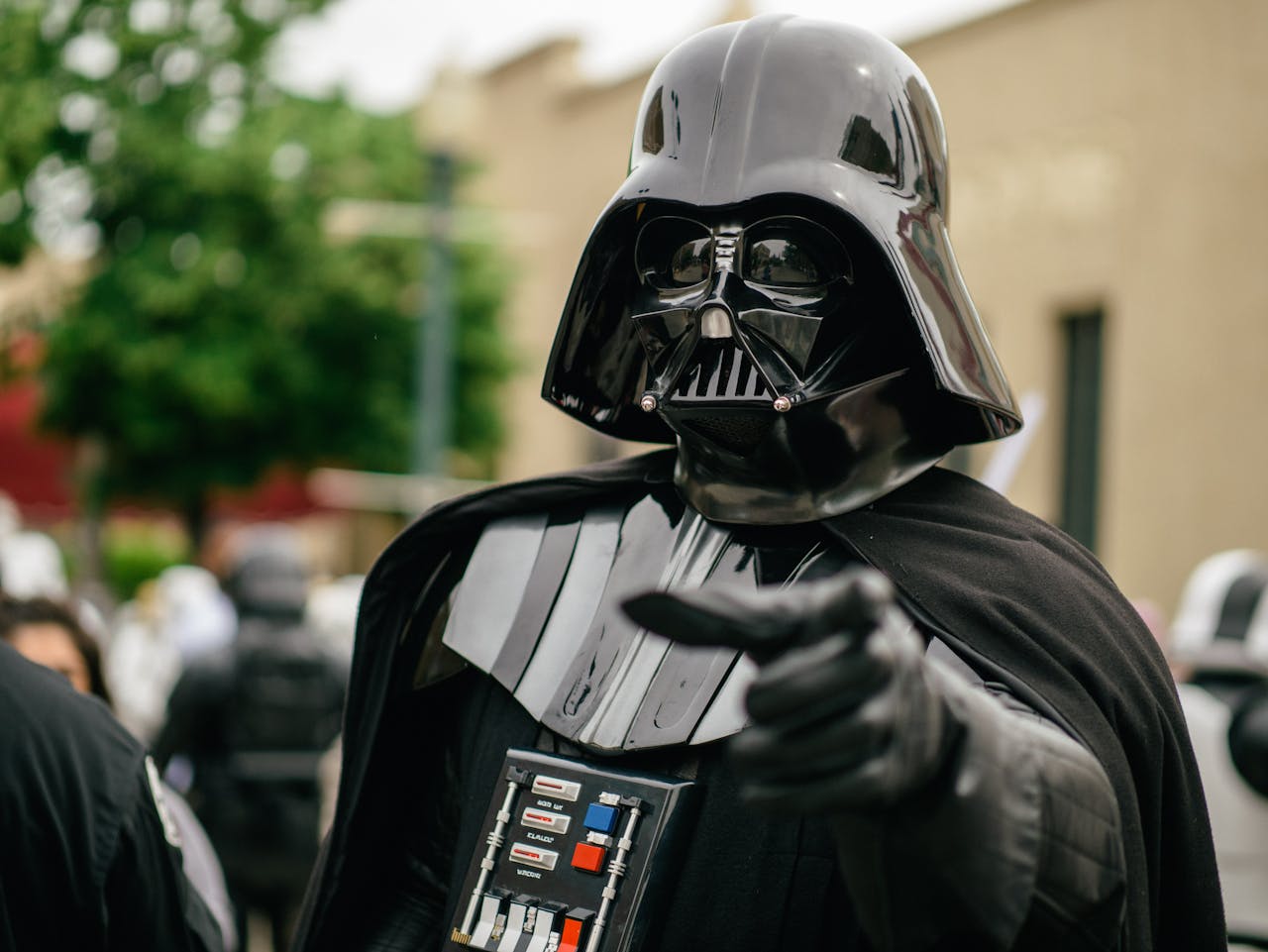By Dan Golding, Swinburne University of Technology, The Conversation
It is difficult to imagine a world of pop culture villains without Darth Vader.
The masked and cloaked figure now casts perhaps the longest shadow of any film character on popular culture. When Vader first appeared on screen in 1977, audiences recognised something elemental, and reportedly did something that hadn’t been done since the days of Vaudeville and silent cinema: instinctively, they hissed.
One look at Vader and you recognise a cinematic villain. Beyond the visual, every element of Vader builds the perfect bad guy. There’s that voice, provided by James Earl Jones, who died today at age 93. There are the lines – “I am your father”. Then there’s that theme tune by John Williams, a piece of music so well loved that it’s often forgotten that it wasn’t written until the second Star Wars, The Empire Strikes Back in 1980.
George Lucas created Darth Vader in the earliest drafts of the original Star Wars script, after completing American Graffiti in the early 1970s, describing him as a “a tall, grim-looking general”. Lucas was inspired by comic books and the serial shorts of the 1940s like Flash Gordon and Buck Rogers.
When it came time to film Star Wars, Lucas hired an English bodybuilder and strongman, David Prowse, to fill out the suit. Yet Prowse spoke with a strong Devonshire accent, earning him the nickname “Darth Farmer” on set.
Lucas searched for a replacement voice to be dubbed over Prowse, and, after asking Orson Welles finally settled on the profoundly sonorous James Earl Jones.
Prowse, who had hoped to voice the lines himself like Anthony Daniels had for C-3PO, had a strained relationship with Lucas from that moment on, and when Vader was unmasked at the end of Return of the Jedi in 1983, it was English stage actor Sebastian Shaw who appeared to deliver the character’s final lines.
Vader’s mythos
Vader has always been a composite character. Despite being one of the most famous parents in the galaxy, he has many different creators.
Lucas, Prowse and Jones are joined by Williams, but also Ralph McQuarrie, the concept artist whose dramatic images defined the character, and Ben Burtt, the sound designer whose breathing through a scuba mask you hear whenever Vader is on screen.
Vader’s mythos has also been built over the years through actor Hayden Christensen’s appearances in the prequel films and recent Disney+ series.
In popular culture, Vader has become a useful shorthand to describe everything from being a bad dad to a political villain. When Ronald Reagan proposed his Strategic Defense Initiative, nicknamed “Star Wars” by the press, newspapers ran cartoons of him as Vader.
Dick Cheney called himself the “Darth Vader of the Bush administration,” defiantly wearing the villainous mantle. Here in Australia, then-Federal Minister Christopher Pyne went up against Vader as the Empire’s chief fixer.
The voice lives on
That James Earl Jones was the only black actor in the original Star Wars film was not lost on viewers at the time.
Astronomer Carl Sagan criticised Star Wars on the Johnny Carson show in 1978:
they’re all white […] not even all the colours represented on the Earth are present, much less greens and blues and purples and oranges.
More recently, Melissa Harris Perry observed that Vader is voiced by a black man while villainous, but portrayed by a white man when redeemed.
Jones’ passing marks the end of an era for Vader as a character. Yet death has always been as central to the Star Wars franchise as its impermanence. After all, Ben Kenobi’s death in the very first Star Wars film has not stopped the character from appearing in almost every subsequent film and gaining his own spin-off TV series.
“If you strike me down, I shall become more powerful than you can possibly imagine,” he says to Vader.
Then there’s Han Solo, whose character was killed off in The Force Awakens in 2015 before getting a dedicated film, Solo, just two years later.
So it may be with James Earl Jones and Vader. In 2022, fans were surprised to hear the ageing Jones appear as the voice of Vader in the Obi-Wan Kenobi series.
It was later revealed Jones had signed over the rights to his archival voice work to Lucasfilm, and his performance had been created from that work using AI startup Respeecher, opening the possibility of infinite future appearances.
Voiced by Jones or not, it is clear Vader has become one of popular culture’s most enduring villains. We will certainly hear more from him in the future – even if he is more machine now than man.![]()
Dan Golding, Associate Professor, Swinburne University of Technology
This article is republished from The Conversation under a Creative Commons license. Read the original article.






















